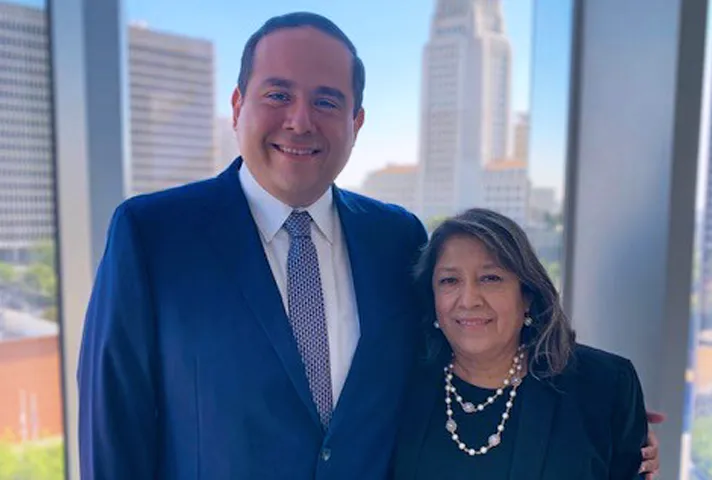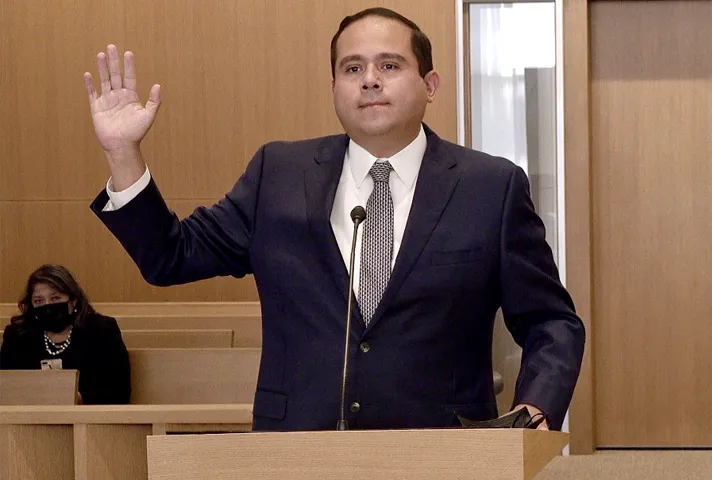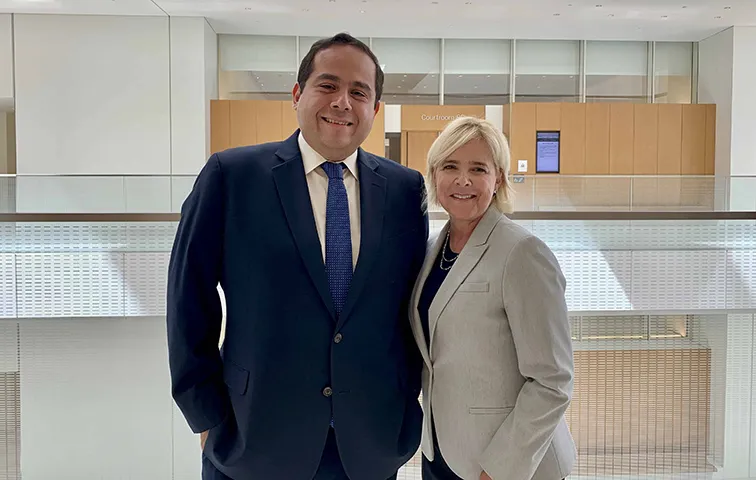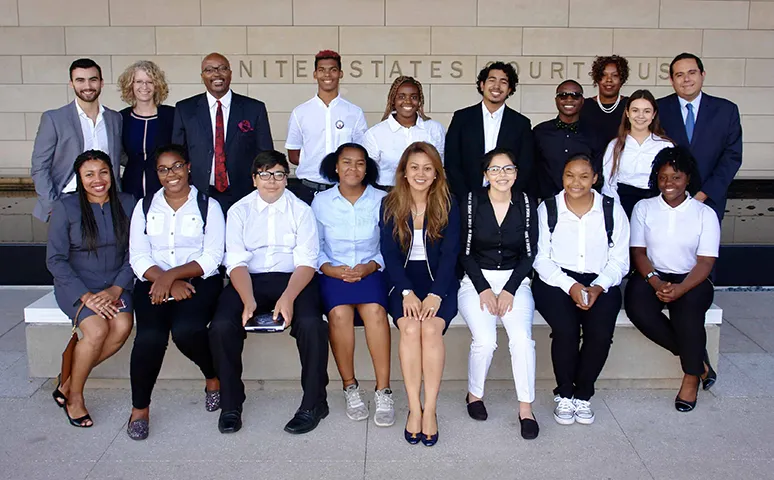
Federal Public Defender Cuauhtemoc Ortega of the Central District of California
Cuauhtemoc Ortega grew up in the working-class neighborhood of La Puente in Los Angeles County, where people he knew sometimes struggled through negative encounters with law enforcement and immigration officials. Now, he leads the Federal Public Defender’s Office representing La Puente and the greater Los Angeles area.
“In our clients, I see myself, my family, my friends, and my neighbors,” Ortega said. “Being able to show our clients compassion is critical in gaining their trust and providing them with the very best representation.”
Ortega made history a year ago by becoming the first Mexican American to head a federal defender office. The Office of the Federal Public Defender for the Central District of California has the nation’s largest federal defender office and encompasses seven counties with a population of over 19 million people.
His father, an immigrant from Mexico, came to California with little money in 1978. He worked various jobs until years later he earned a truck driving license. With steady work as a truck driver for a roofing company, he was able to buy a home for his family.
“My dad taught me the value of hard work,” Ortega said. “I admire the example he and my mom set for me and his courage to leave everything he knew behind and create stability here in the U.S. for our family.”

Cuauhtemoc Ortega and his mother following his swearing-in as the new federal public defender at the federal courthouse in Los Angeles.
Ortega is proud of his Mexican heritage. In observance of Hispanic Heritage Month, which runs from Sept. 15 to Oct. 15, he emphasized the need for greater representation of the Hispanic community in the legal field, as well as mentorship for those growing up in underserved communities.
“Many of our clients in the community are Mexican Americans, and it’s important that our office, the criminal defense bar, and the justice system at large reflect the diversity of the public it serves,” he said.
The oldest of three siblings, Ortega was the first in his family to go to college. He attended the University of California, Los Angeles, and then Columbia Law School. Mentors and teachers in high school and college aided Ortega in his journey to a career in law.
“I can see in retrospect why so many people in my high school didn’t go to college. It can seem like an unattainable goal, especially if you don’t have support from someone who is knowledgeable about the process,” Ortega said. “I’m thankful that my teachers and counselors invested time in guiding me through the college application and financial aid process.”

Cuauhtemoc Ortega is sworn in as the federal public defender of the Central District of California on Oct. 15, 2020.
Upon finishing law school, Ortega became intrigued by public criminal defense law while observing court proceedings during his clerkship with the late Judge Alicemarie Huber Stotler, of the Central District of California, in 2007-2008.
“I was struck by the passion and professionalism that defenders exuded while presenting in court,” he said. “Now I, too, get to fulfill the constitutional promises owed to those in need. I take an enormous amount of pride and responsibility in my work and push myself to be my very best and stay engaged with the communities we serve.”
Joining the defender office in 2010 as a deputy federal public defender in the Orange County division, Ortega acquired a valued mentor in Amy Karlin, then chief of that division, who taught him important lessons in trying cases and presenting in front of a jury. Honing his skills, Ortega moved through the ranks and eventually became chief deputy federal public defender in 2019.

Cuauhtemoc Ortega and his mentor Amy Karlin inside the federal courthouse in Los Angeles.
“Cuauhtemoc’s diverse background has shaped his values and given him an understanding of the challenges the community we serve face,” said Karlin, who is now the Central District’s chief deputy federal public defender. “As a line attorney, he put the clients first by vigorously litigating their cases and treating everyone with respect and kindness. Now as the leader of the office, he ensures that every employee does the same.”
Appointed to head the office during the global pandemic, Ortega had to navigate uncharted territory as the coronavirus posed unprecedented threats to clients’ safety and constitutional rights. The right to counsel for those who cannot afford an attorney is guaranteed under the Sixth Amendment and the Criminal Justice Act.
“The past year has brought many challenges to our office, requiring that we develop solutions that both keep our clients’ cases moving forward while also keeping everyone safe in the process,” Ortega said. “I am honored and humbled that I get to lead an office fervently committed to providing our clients with the highest quality representation even when faced with daunting obstacles.”
Today, Ortega tries to pay his mentorships forward by meeting with students in underrepresented communities, through collaborations with local area bar associations and high schools.

Cuauhtemoc Ortega (back-right) and federal defender staff coached the 2018 Dorsey High School mock trial team, helping them prepare for competition against other schools and answer questions about the law.
“It’s always rewarding to see students I’ve worked with begin their own careers in the law,” Ortega said. “I hope that by getting into the classroom and working with students, I can help answer some of their questions about higher education and show them that a career in law is possible for them too.”
Subscribe to News Updates
Subscribe to be notified when the news section is updated.
